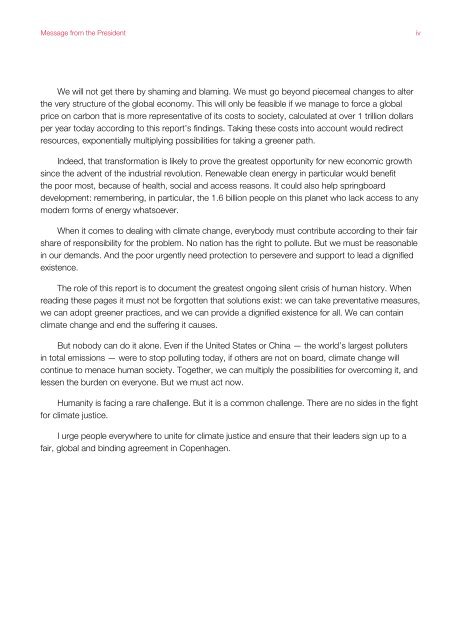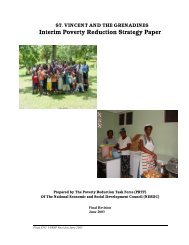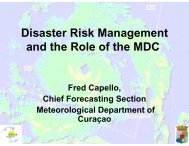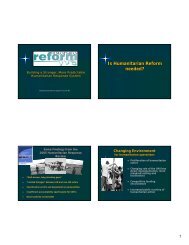The Anatomy of A Silent Crisis The Anatomy of A Silent Crisis
The Anatomy of A Silent Crisis The Anatomy of A Silent Crisis
The Anatomy of A Silent Crisis The Anatomy of A Silent Crisis
- TAGS
- anatomy
- www.bb.undp.org
Create successful ePaper yourself
Turn your PDF publications into a flip-book with our unique Google optimized e-Paper software.
Message from the President iv<br />
We will not get there by shaming and blaming. We must go beyond piecemeal changes to alter<br />
the very structure <strong>of</strong> the global economy. This will only be feasible if we manage to force a global<br />
price on carbon that is more representative <strong>of</strong> its costs to society, calculated at over 1 trillion dollars<br />
per year today according to this report’s findings. Taking these costs into account would redirect<br />
resources, exponentially multiplying possibilities for taking a greener path.<br />
Indeed, that transformation is likely to prove the greatest opportunity for new economic growth<br />
since the advent <strong>of</strong> the industrial revolution. Renewable clean energy in particular would benefit<br />
the poor most, because <strong>of</strong> health, social and access reasons. It could also help springboard<br />
development: remembering, in particular, the 1.6 billion people on this planet who lack access to any<br />
modern forms <strong>of</strong> energy whatsoever.<br />
When it comes to dealing with climate change, everybody must contribute according to their fair<br />
share <strong>of</strong> responsibility for the problem. No nation has the right to pollute. But we must be reasonable<br />
in our demands. And the poor urgently need protection to persevere and support to lead a dignified<br />
existence.<br />
<strong>The</strong> role <strong>of</strong> this report is to document the greatest ongoing silent crisis <strong>of</strong> human history. When<br />
reading these pages it must not be forgotten that solutions exist: we can take preventative measures,<br />
we can adopt greener practices, and we can provide a dignified existence for all. We can contain<br />
climate change and end the suffering it causes.<br />
But nobody can do it alone. Even if the United States or China — the world’s largest polluters<br />
in total emissions — were to stop polluting today, if others are not on board, climate change will<br />
continue to menace human society. Together, we can multiply the possibilities for overcoming it, and<br />
lessen the burden on everyone. But we must act now.<br />
Humanity is facing a rare challenge. But it is a common challenge. <strong>The</strong>re are no sides in the fight<br />
for climate justice.<br />
I urge people everywhere to unite for climate justice and ensure that their leaders sign up to a<br />
fair, global and binding agreement in Copenhagen.







